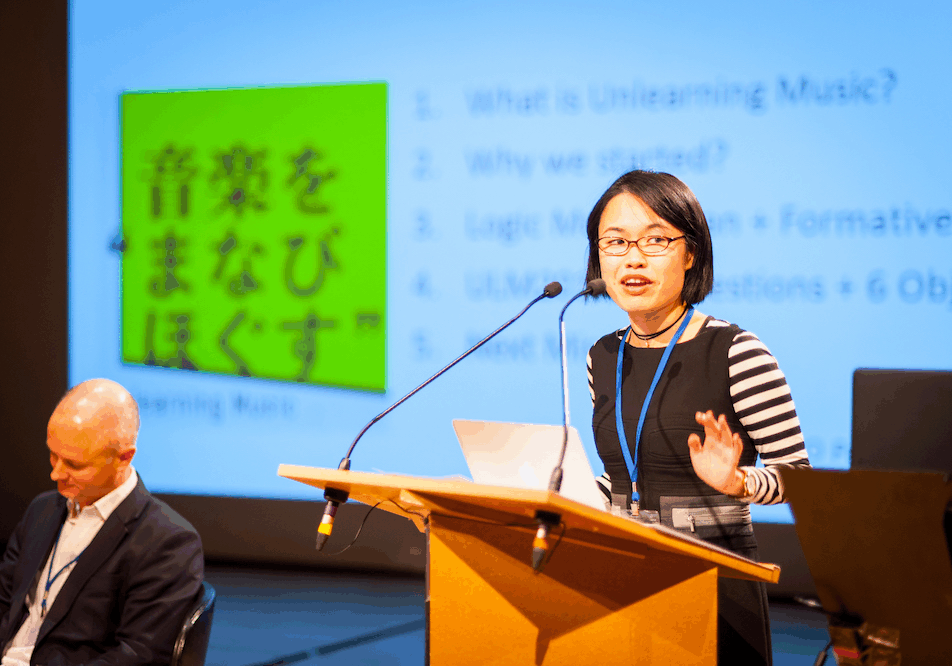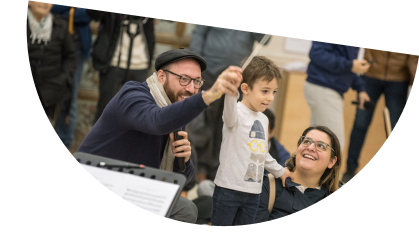Yukiyo Sugiyama
Yukiyo Sugiyama is the project director of Unlearning Music: Dialogues on Music, Learning and Facilitation (ULM) aimed at arts management professionals and young artists and supported by the the Japanese national educational arts initiative scheme.
Music conservatoires and art universities have a long history as temples of rigorous artistic training. I am one of their alumni and current employees. The social climate surrounding music and the arts has however evolved rapidly over the past few decades. As a result, arts institutions are adapting their curricula, producing young talents who can respond to the demands of fast changing societies and offer creative solutions. Not just well-trained artists and music teachers, but also good art managers, producers, community educators and facilitators. I myself nurture arts education specialists through the programme Unlearning Music.
I however have some concerns about the future of such institutions. If higher education arts institutes continue to emphasise vocational training, our status as “higher education” institutions could be undermined, especially considering the recent belittling attitude against the arts, humanities and social science academic arena from the Japanese government. Moreover, these art institutes appear to be neglected by a part of the arts sector.
From Evaluation to New Practice Models

In addition to producing talent, how can arts universities and music conservatoires contribute to artistic practice? As institutes responsible for intellectual production, arts universities could academically document this practice. In just under a month’s time we will witness how higher education can collaborate with arts institutes at RESEO’s Belgrade conference. One outcome may be evaluation, the subject of last year’s Paris conference.
In order to illustrate the importance of arts education, we must demonstrate the intellectual innovation of our projects, both practically and academically. The insights of arts education work can be illustrated by the theories of Tacit Knowing by Michael Polanyi, or the Zone of Proximal Development by Lev Vygotzky.
In my recent research, I focused on artists’ learning perception through outreach activities as social practice in light of Engestrom’s ‘Expansive Learning’, through qualitative approach based on analysis of interviews. This is only one aspect of the evaluation of arts education programmes. Arts education programmes, of the kind that are implemented by many RESEO members, can be a new practical methodology for challenging existing art forms, reconstructing communities that can share norms and values through the arts. (There are many more findings but I will keep them for next time!)
Identifying and measuring the subtleties of practice is complex, requiring a good mixture of both quantitative and qualitative research, particularly when using a social constructivism approach. Project evaluation opens doors to better practice. Art universities could train research specialists to conduct multi-disciplinary approaches and promote new practice models based on a solid evaluation process.
There are arts universities and research specialists willing to explore new practice models seeking something unseen but exciting. We, arts universities and music conservatoires, are part of the art world. We can offer skills and experience as arts institutes and training specialists. In other words, that is one of responsibilities that arts universities and music conservatoires shoulder for the Arts.


